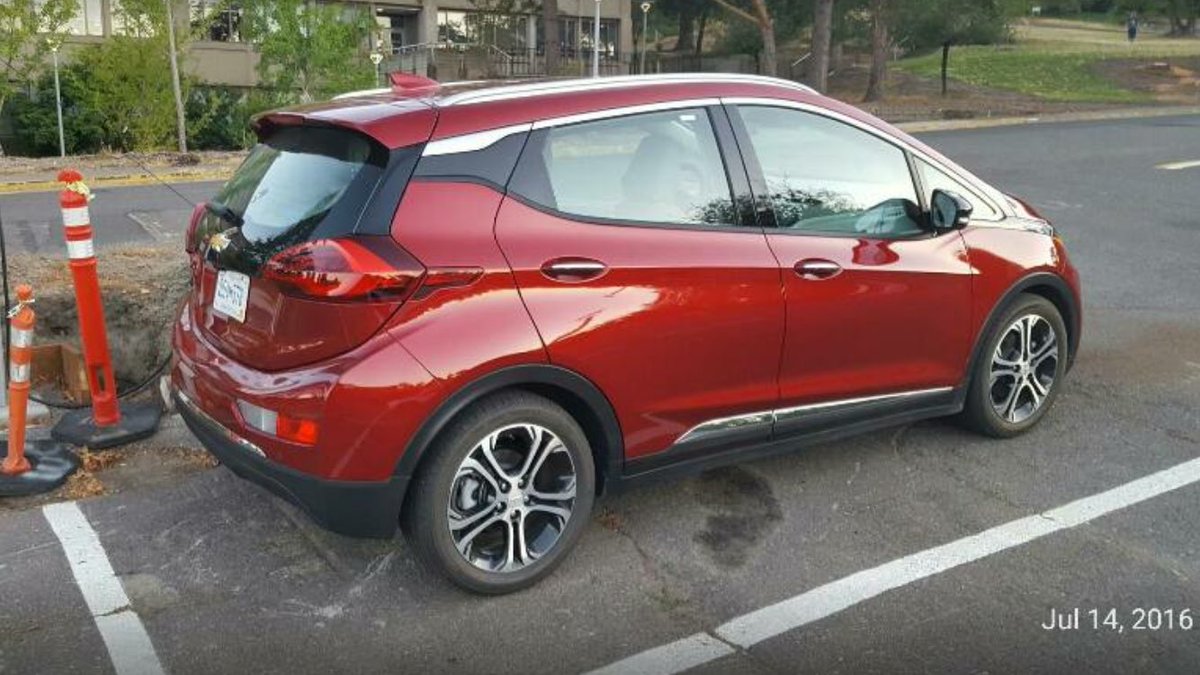
General Motors has just recently acquired a self-driving car start-up called Cruise Automation and they’ve already mounted sensor arrays onto the roofs of a few Chevy Bolts.
The above specimen was caught testing by SpiedBilde on the streets of San Francisco, uploaded by The Verge and interesting enough, one of the drivers in that Bolt is Cruise Automation co-founder Kyle Vogt. He’s obviously not taking a back seat with this project and their site stated as much, “we are testing our autonomous technology on the all new Chevrolet Bolt EV in San Francisco.”
GM has been pretty open about the fact that they see autonomous cars as an integral part of its future, that’s why they put down a $500 million investment in Lyft. They could actually be testing the passenger ferrying abilities of the autonomous Bolt EV since all four seats seems to be occupied in the spy shot.
This shot of their self-driving Bolt is certainly putting pressure on those who are in the autonomous fleet race because soon after the spied photo was uploaded, Uber decided to respond with a shot of their own Ford Fusion hybrid equipped with radars, laser scanners, and high resolution cameras.
Who do you think will win the autonomous fleet arms race?







